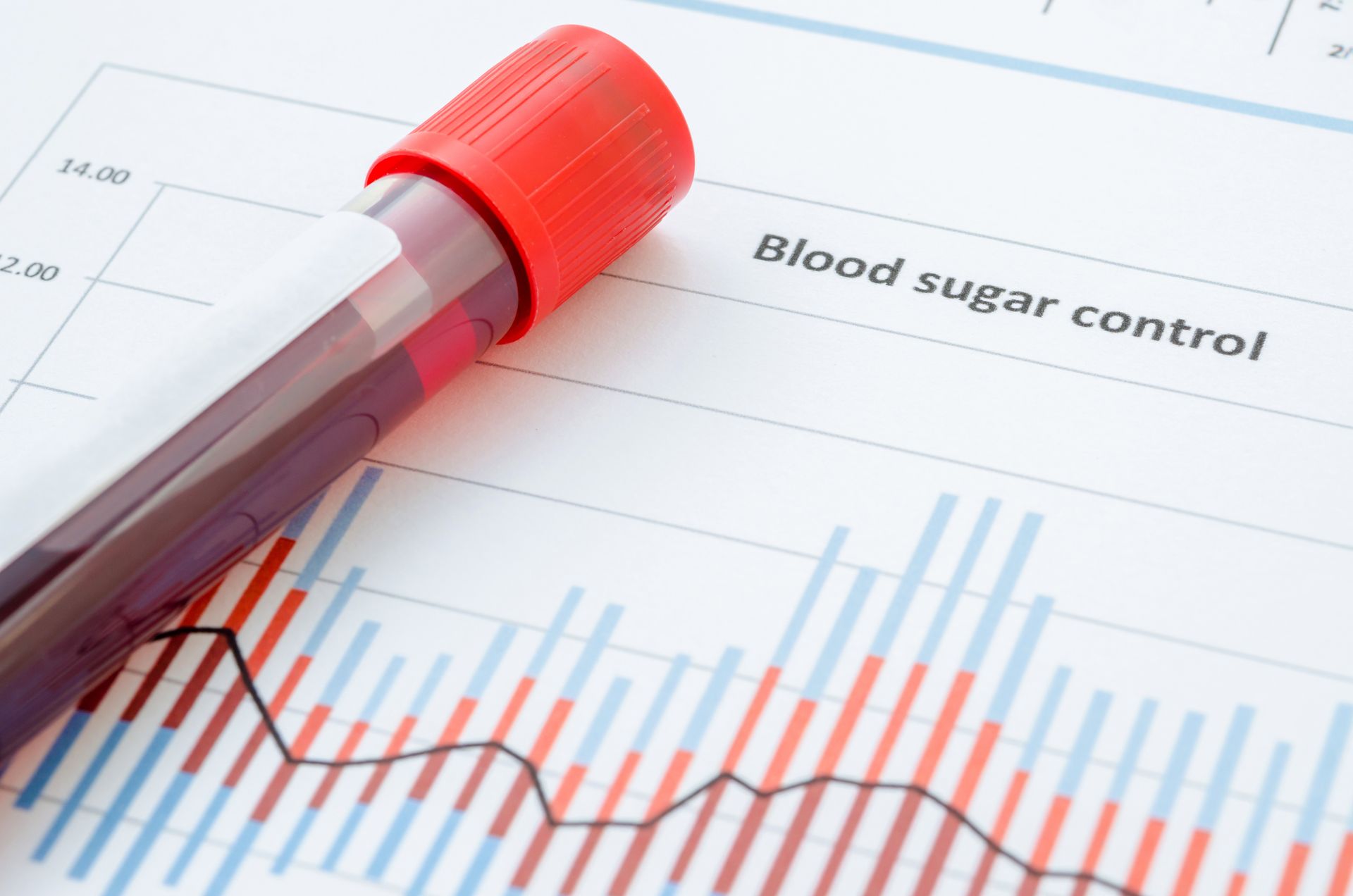A Comprehensive Guide to Blood Sugar Management

Managing blood sugar levels is a crucial part of health and wellness. Inadequate blood sugar levels can cause diabetes, weight gain, fatigue, mental health issues, cardiovascular issues and other more serious health complications. Thankfully, there are specific measures that can be taken to make sure blood sugar levels don’t rise too high or low.
Consume a Balanced and Nutritious Diet
One of the most important ways to manage blood sugar levels is to consume a healthy diet. While there are ongoing debates as to what the ultimate “healthy diet” is, most health experts agree that whole, unprocessed foods are the way to go.
Meals throughout your day should incorporate a range of fruits, vegetables, whole grains and lean proteins for the essential nutrients your body needs. While carbohydrates aren’t necessarily bad, it’s important to monitor your intake and always choose complex carbs over refined carbs.
It’s also important to monitor your portion sizes and avoid overeating. This can lead to blood sugar spikes and increase the risk of developing conditions like type 2 diabetes.
One good practice to control overeating is to practice mindful eating. This is done by chewing your food thoroughly and being aware of each bite you take. This approach can prevent emotional or stress-induced overeating. Taking your time when eating also lets your body naturally tell you when you are genuinely full (estimates suggest it takes about 20 minutes for the brain to register “satiety” from the stomach – or fullness).
Stay Physically Active
Another essential way to manage blood sugar levels is to stay physically active. That’s because proper exercise can help enhance insulin and glucose in the body.
Doctors often recommend diabetics or people with disorders affecting blood sugar are best served by moderate-intensity workouts, as high-intensity workouts may cause blood sugar levels to rise too much. Healthcare professionals suggest that people should aim for at least 150 minutes of moderate-intensity exercise per week. This includes activities like brisk walking, swimming, cycling yoga and strength training.
Proper Hydration
Staying hydrated also plays a huge role in regulating blood sugar levels by ridding your body of any excess glucose. Healthcare professionals recommend that the average woman drinks at least 6.5 cups of water per day and the average man drinks 8.5 cups for the most optimal hydration. This is especially true if you have a condition like diabetes.
The exact amount of water you should be drinking each day will vary based on things like your weight, age, metabolism or other medical conditions. This is also not the recommended upper-limit of water consumption – drinking more water than the minimum recommendation is typically not discouraged.
It’s also best to limit the consumption of sugary and caffeinated beverages, like soda, as they can lead to spikes in blood sugar.
Regularly Monitoring Blood Sugar Levels
If you are someone who struggles with fluctuating blood sugar, it’s important to consistently monitor and keep track of your blood sugar levels, especially if you are managing a condition like diabetes.
People with diabetes who need to check blood sugar levels throughout the day often use a glucose monitor. This device measures blood sugar levels based on a blood sample obtained by pricking a finger. There are many different brands and types of blood sugar measuring devices, and a pharmacist can help you understand your options and recommend devices for you to try. There’s no one right solution, and you may need to try several before finding the best one for you.
It’s important to keep a detailed record of your readings so you and your healthcare team can identify patterns and make important decisions regarding medication, insulin dosage, dietary adjustments and lifestyle modifications.
It’s also important to schedule regular check-ups with your healthcare provider to monitor your overall health and discuss any concerns related to blood sugar levels. St. Hope Pharmacy emphasizes the importance of collaborating with healthcare professionals for personalized advice and guidance on maintaining optimal blood sugar levels.
Prioritizing Sleep
Like health and exercise, prioritizing adequate and quality sleep is also extremely beneficial for the regulation of blood sugar levels. When individuals consistently experience a lack of sleep, it can disrupt the balance of hormones in the body and impact one’s sensitivity to insulin.
According to the NIH, individuals should get at least seven to nine hours of quality sleep each night to support overall health and blood sugar regulation.
Practice Stress Management Techniques
Many people are surprised to know that chronic stress is a major cause of high blood sugar levels. In fact, 72 percent of adults in the United States have faced health impacts directly caused by stress.
While stress can sometimes be inevitable due to the hustle and bustle of work and other daily life tasks, incorporating stress-reduction techniques can help. Options for stress management include things like:
- Meditation
- Breathwork
- Yoga
- Mindfulness
- Herbal remedies
- Journaling
- Relaxing hobbies or activities
In severe cases of stress, seeking professional help from a counselor or therapist could also help create more calmness and balance in your life.
Connect With Our Houston Pharmacists at St. Hope Pharmacy to Learn More About Managing Your Blood Sugar Levels
If you or someone you know would like to learn more about managing blood sugar levels, the Houston pharmacists at St. Hope Pharmacy are here to help answer your questions and make recommendations. We have a diverse variety of testing devices and diabetes management tools in our inventory and can help with everything from providing insulin to guidance on blood sugar monitoring strategies and equipment.
For personalized advice, visit one of our St. Hope Pharmacy locations located in Houston, Sugar Land, Dickinson or Bellaire, or contact us online today.


